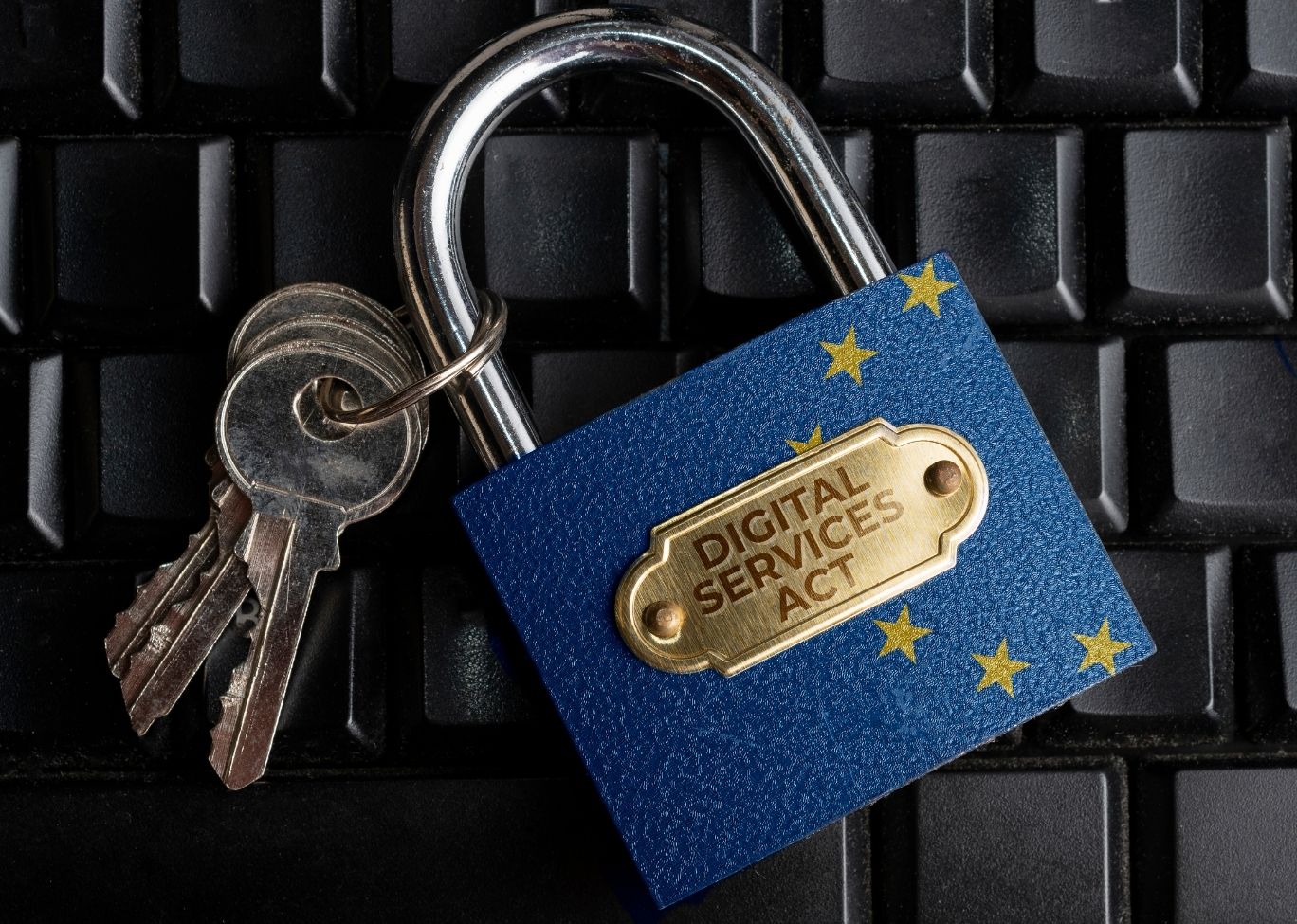The European Union issued a new law, technology companies beware of receiving enough
On April 22, the European Union agreed on digital regulations that would force tech giants like Google and Meta to forcefully police illegal content on their platforms. stronger, or risk billions of dollars in fines.
Specifically, the European Parliament and EU member states have reached an agreement on the Digital Services Act (DSA), a landmark law aimed at tackling illegal, and harmful content. by requiring platforms to promptly remove such content.

The Digital Services Act (DSA) is a landmark piece of legislation. It will require Big Tech companies to quickly remove illegal content on their platforms. Photo: @AFP.
The deal is “better than the proposal we made in 2020,” said Margrethe Vestager, EU competition chief and key “architect” of the bloc’s digital reform. .
“It’s not a slogan anymore. It’s a real thing now. Democracy is back,” Vestager said in a video posted on Twitter. Meanwhile, European Commission President Ursula von der Leyen issued a statement calling the agreement a “historic” turning point. She said: “The DSA will upgrade the basic rules for all online services in the EU. It will ensure that the online environment remains a safe space, protecting freedom of expression and creating more opportunities for digital businesses”.
What is the Digital Services Act (DSA)?
An important part of the law will limit how the digital giants target users with online advertisements. The DSA will effectively prevent platforms from targeting users with algorithms that use data based on their gender, race, or religion. Targeting children with ads will also be prohibited. So-called dark patterns – deceptive tactics designed to drive people towards certain products and services will also be banned.
Tech companies will be required to implement new processes designed to take down illegal data such as hate speech, incitement to terrorism and child sexual abuse. E-commerce marketplaces like Amazon must also prevent the sale of illegal goods under the new regulations.
The law also includes measures to force tech giants to be more transparent about the algorithms they use to recommend content to users. Another provision would require major online platforms and search engines to take certain measures in the event of a crisis, like Russia’s invasion of Ukraine.
Failure to comply with the rules can result in fines of up to 6% of companies’ global annual revenue. For a company like Meta, Facebook’s parent company, that could mean fines of up to $7 billion based on sales figures for 2021. The law is currently being formally approved by EU agencies. . It is expected to come into force in 2024 at the earliest.
Apparently, the Digital Services Act (DSA) is separate from the Digital Markets Act (DMA), which European Union institutions approved last month. Both come with the threat of hefty fines. But while the DMA seeks to limit the market power of Big Tech companies, the DSA aims to ensure platforms remove malicious content quickly.
The new law will also affect platforms with user-generated content such as Facebook, Instagram, Twitter, YouTube and TikTok.
A Google spokesperson said the company welcomed the DSA’s goals, but added that it wanted to work with EU policymakers to “get a grasp of the remaining technical details to ensure legislation matching people”.
A Google spokesperson told CNBC: “We welcome the DSA’s goals of making the Internet even more secure, transparent, and accountable, while ensuring that users, creators, and European businesses continue to benefit from the open web. As the legislation is finalized and implemented, the details will matter.”

The EU agrees on landmark legislation to force Big Tech companies to deal with illegal content. Photo: @AFP.
A Twitter spokesperson said the company looks forward to a detailed regulatory review: “We support smart, forward-thinking regulation that balances the need to tackle online harm with protecting the open Internet Twitter’s top priority is keeping people safe online and protecting the health of public conversation, and in the Digital Services Act, we welcome increased focus focus on a healthier digital space in the EU”.
Opponents, however, argue that this could greatly limit freedom of expression online. For its part, the UK government has said it will not require any legal freedoms of speech to be removed and that “democraticly important” content will be protected.
As can be seen, the introduction of new European rules to regulate Big Tech comes as policymakers in Washington are wondering how to curb the power of public companies. technology and get them to wipe harmful content off their platforms.
Recently, former President Barack Obama called for reform of Section 230, a law that protects online platforms from liability for user posts, to combat the spread of misinformation. online misinformation.
at Blogtuan.info – Source: danviet.vn – Read the original article here


